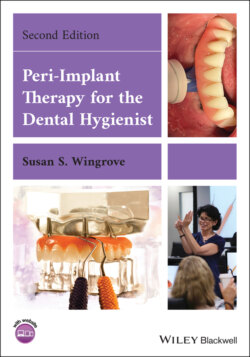Читать книгу Peri-Implant Therapy for the Dental Hygienist - Susan S. Wingrove - Страница 29
Preterm birth/low birth weight
ОглавлениеThere is a direct link between oral infections and premature births and low birth weight infant outcomes (6). Chronic infections such as periodontitis and implantitis can lead to an increased inflammatory response in pregnant mothers which, in turn, causes the production of higher levels of prostaglandins prematurely. The prostaglandins are produced naturally by the placenta to stimulate the birth of the baby, the end result being a low weight, and a prematurely birthed infant. In recent studies, researchers have also found that periodontal pathogens may travel from the oral cavity to the placenta to directly cause premature birth (7).
Periodontal therapy for pregnant mothers has few adverse side effects and is recommended during the second trimester to reduce the occurrence of preterm low birth weight infants. The AAP strongly recommends good dental care during pregnancy. Women may experience increased gingivitis or pregnancy gingivitis beginning in the second or third month of pregnancy that increases in severity up to the eighth month.
It is recommended to have an oral checkup with a dental professional with two dental prophylaxis visits: one in the first trimester and one in the third trimester. Studies demonstrate that periodontal therapy before 28 weeks of gestation can reduce the risk of preterm low birth weight infants in women with periodontitis.
